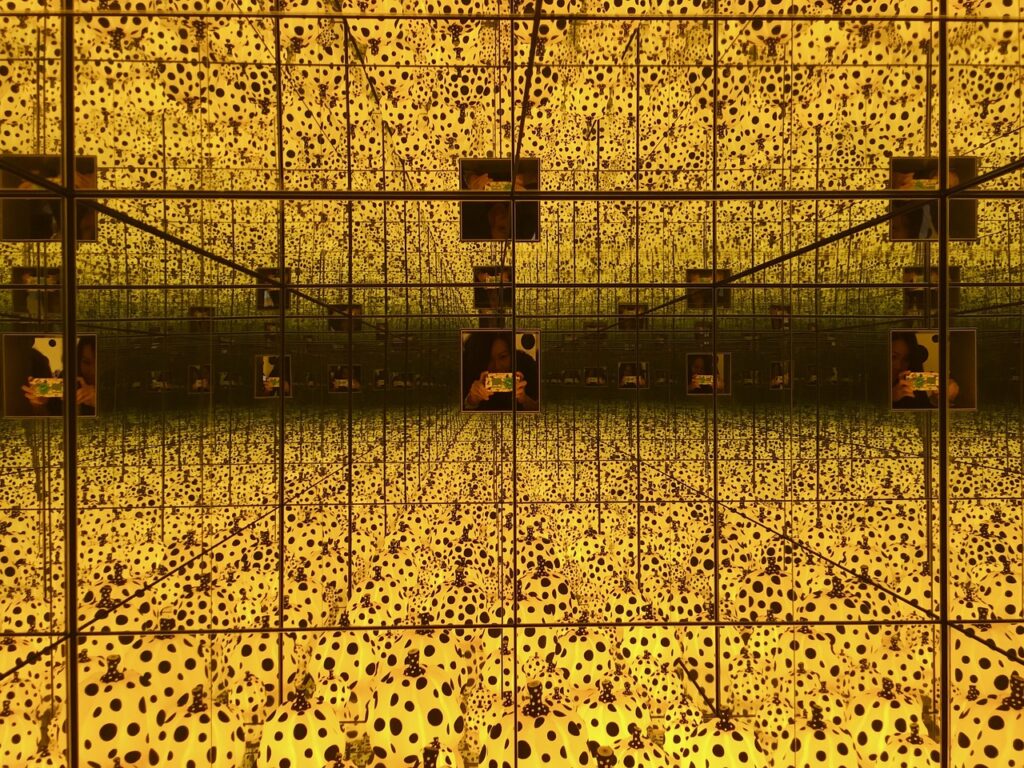“The urge to transcend self conscious selfhood is a principle appetite of the soul”
It’s 70 years since 4th May 1953, the date of Aldous Huxley’s mescaline trip experienced under the supervision of a psychiatrist. Huxley was experimenting to understand and explore its magical effects.
Aldous Huxley is most famous for writing ‘Brave New World’, a dystopian novel which is seen as similar to George Orwell’s ‘1984’. His experience on mescaline is detailed in his famous short book ‘The Doors of Perception’, which served as the inspiration for the name of Jim Morrisons band ‘The Doors’.

The Doors of Perception by Aldous Huxley
Accompanied by his wife and Humphry Osmond, a British psychiatrist, Aldous Huxley’s mescaline trip began at his Los Angeles home.
Huxley describes his experience, detailing the changes in his sensory perception and his emotional state. He writes about how the drug alters his perception of time, space, and color, and how it gave him a heightened sense of empathy and connection to the world around him.
“To be shaken out of the ruts of ordinary perception, to be shown for a few timeless hours the outer and the inner world, not as they appear to an animal obsessed with words and notions, but as they are apprehended, directly and unconditionally, this is an experience of inestimable value to everyone and especially to the intellectual”
What is mescaline?
Mescaline is a naturally occurring psychoactive substance found in certain species of cacti, most notably the Peyote cactus (Lophophora williamsii) and the San Pedro cactus (Echinopsis pachanoi).
Aldous Huxley’s mescaline trip was not the first – it has been used for centuries by indigenous peoples in North and South America for religious and spiritual purposes.

Mescaline is a potent hallucinogen that produces profound changes in perception, mood, and thought. The effects can last for several hours, during which time users may experience vivid visual hallucinations, altered sense of time and space, and a heightened sense of emotional and spiritual awareness.
Mescaline has been studied for its potential therapeutic uses, particularly in the treatment of addiction and certain psychiatric disorders.

Implications of the Doors of Perception on reality
Huxley reflects on the broader implications of his experience with mescaline.
He suggests that the drug can provide a window into a different way of experiencing the world, one that is more profound and meaningful than the ordinary, everyday experience. He argues that this altered perception can help individuals break free from the limitations of their own minds, and see the world in a new and transformative way.
“Space was still there; but it had lost its predominance. The mind was primarily concerned, not with measures and locations, but with being and meaning”
Our main senses are given to us to survive.
As a primitive animal, we needed sight, sound, touch, and smell to identify predators and to catch food. However if were truly aware of everything that is going on around us, the brain would not be able to handle this much information and stimulation. Our evolved way of being is to ‘filter out’ all that is deemed unnecessary for the purpose of survival, and thus robs us of a more accurate and connected sense of our true reality.
Throughout the book, Huxley also reflects on the nature of perception itself, and on the ways in which our perceptions are shaped by cultural and psychological factors. He suggests that by changing our perceptions, we can open ourselves up to new experiences and new ways of thinking.

Huxley argues that human beings are limited by their everyday perceptions, which he describes as a “reducing valve” that filters out much of the sensory input that bombards our brains. He suggests that taking psychoactive substances like mescaline can temporarily lift this veil, allowing us to experience the world in a more profound and meaningful way.
Throughout Aldous Huxley’s mescaline trip, he also draws on various philosophical and spiritual traditions, including Hinduism and Buddhism, to explore the nature of consciousness and the self.
He suggests that the human mind is capable of experiencing a deeper and more unified reality than what we typically perceive, and that this expanded consciousness may hold the key to understanding the mysteries of existence.
In the final chapter of the book, Huxley reflects on the implications of his experiences with mescaline for society as a whole. He argues that the insights gained through altered states of consciousness could be of great value in addressing the spiritual and psychological needs of humanity, and that they may even hold the key to a new and more enlightened civilization.

The Impact of ‘The Doors of Perception’
“The Doors of Perception” has had a significant impact on popular culture and the counterculture of the 1960s. It has been praised for its insightful and poetic writing, and for its exploration of the potential of psychedelic drugs to broaden human consciousness and understanding.
Seeing an educated, wise, and respected individual like Huxley engaging in the psychedelic revolution and being able to articulate a story of such sadness, hope, and profundity was critical.
The lazy image of moronic drug taking hippies was shattered, and the role of mind altering entheogens was now being considered in the development of human civilization, in a post industrial world striving for its own new vision and identity.
Article: Astral projection and opening up to new perceptions
The Zen word on Aldous Huxley’s mescaline trip
An inspirational and visionary writer, Aldous Huxley’s book on his experiences taking mescaline fuse the deep philosophical and spiritual musings on reality, with a tale of first time drug use.
Huxley presents an argument which makes sense to us all on a deeply meaningful level – the answer to the question asked by so many ‘is this really all there is?’
The Doors of Perception asserts that there is so much going on in reality than we are not immediately aware of, and it is a magical mosaic of deep connection and meaning.
At Cultivated Zen we believe in the power of changing perception and connecting to a higher reality. The work of Huxley has had a big part in our journey, and we highly recommend picking up a copy of the book.
Ultimately, we can approach our individual and collective lives in a more considered, mature, and civilized way. Psychedelics may have a major part to play in that, but we have to be prepared to change our minds, and take the soulful journey through the doors of perception.


Leave a Reply